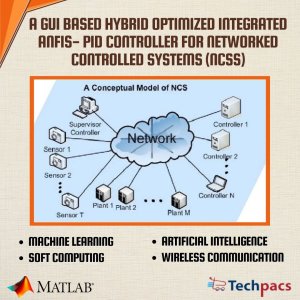Path Planning Optimization Using Fuzzy Logic and YSGA in WRSNs
Problem Definition
After reviewing the existing literature, it is evident that energy consumption is a critical issue in wireless sensor networks (WSN) that significantly impacts the lifespan of the network. Previous research efforts have focused on various methods to enhance network longevity by reducing energy usage, but these efforts have not yielded efficient results. For instance, a recent study proposed a multi-objective Ant Colony Optimization (ACO) approach to improve the pheromone strategy for selecting Cluster Heads (CH) in WSN. However, the complexity of the system increased due to the number of parameters involved, and the static nature of the parameters limited its applicability in dynamic environments. Moreover, utilizing the outdated ACO algorithm for routing further undermined the performance of the system, as more advanced optimization algorithms are available that could offer better solutions.
The challenges associated with ACO, such as difficulty in theoretical analysis and reliance on random decision-making, highlight the need for a more effective and less complex approach to reduce energy consumption in WSN.
Objective
The objective of the proposed work is to address the issue of energy consumption in Wireless Sensor Networks (WSN) by implementing a soft computing-based fuzzy system and YSGA algorithm for effective decision-making and routing. This includes utilizing wireless charging vehicles to recharge sensor nodes when their energy levels drop below a certain threshold to extend the network's lifespan. By simplifying the complexity of traditional systems and optimizing the routing process, the proposed approach aims to improve energy efficiency in WSN. Through the use of a fuzzy-based model for selecting Cluster Heads and the YSG algorithm for routing path selection, the goal is to achieve optimal and efficient results, ultimately enhancing the network lifetime. The combination of these techniques aims to offer a comprehensive solution for reducing energy consumption in WSNs.
Proposed Work
In the proposed work, the main objective is to address the issue of energy consumption in Wireless Sensor Networks (WSN) by implementing a soft computing-based fuzzy system and YSGA algorithm for effective decision-making and routing. To overcome the limitations of existing methods, wireless charging vehicles will be utilized to recharge sensor nodes when their energy falls below a certain threshold, ensuring extended network lifespan. The proposed approach aims to simplify the complexity of traditional systems while optimizing the routing process. By utilizing a fuzzy-based model, various parameters will be considered when selecting Cluster Heads (CH) in the network, allowing for easy control of input parameters in dynamic environments. Fuzzy systems are known for providing effective solutions to complex problems and are user-friendly.
Additionally, the use of the Yellow saddle Goatfish (YSG) algorithm for routing path selection is a novel approach that promises optimal and efficient results, ultimately leading to an enhanced network lifetime. By combining these techniques, the proposed work seeks to provide a comprehensive solution for reducing energy consumption in WSNs.
Application Area for Industry
This project can be implemented in various industrial sectors such as manufacturing, logistics, agriculture, healthcare, and smart cities. In the manufacturing industry, the proposed solutions can help in optimizing the energy consumption of sensor networks, leading to increased efficiency and reduced operational costs. In logistics, it can aid in improving routing algorithms for better tracking of goods and vehicles. In agriculture, the project can be utilized to monitor soil conditions, crop growth, and irrigation needs more effectively. In the healthcare sector, the solutions can enhance patient monitoring systems and improve the overall quality of healthcare services.
Lastly, in smart cities, the project can support smart infrastructure development, traffic management, and environmental monitoring.
The challenges faced by these industries, such as the need for energy-efficient systems, complex routing algorithms, and dynamic environments, can be effectively addressed by the proposed solutions. By utilizing wireless charging vehicles, fuzzy-based models, and the YSG algorithm, the project offers a more streamlined and optimized approach to reducing energy consumption, improving routing procedures, and enhancing the overall performance of wireless sensor networks. The implementation of these solutions can lead to increased network lifespan, reduced operational costs, enhanced data accuracy, and improved decision-making processes across various industrial domains.
Application Area for Academics
The proposed project can greatly enrich academic research, education, and training by addressing a significant challenge in wireless sensor networks (WSNs) - reducing energy consumption to enhance the network lifespan. By utilizing a fuzzy-based model and the Yellow Saddle Goatfish (YSG) algorithm, the project aims to optimize routing procedures and improve the overall performance of WSNs.
This research can be highly relevant for researchers, MTech students, and PhD scholars working in the field of wireless sensor networks. They can utilize the code and literature from this project to explore innovative research methods, simulations, and data analysis within educational settings. The use of advanced algorithms like fuzzy logic and YSGA can offer valuable insights into optimizing energy efficiency in WSNs and contribute to the development of new strategies for network management.
Moreover, the project's focus on dynamic environments and efficient decision-making processes can provide a practical framework for implementing sustainable energy solutions in sensor networks. The potential applications of this research extend to various domains, including IoT, smart cities, and environmental monitoring, offering a wide range of opportunities for scholars and practitioners to apply these findings in their work.
Reference Future Scope:
In the future, the project can be further expanded to explore the integration of machine learning techniques and advanced optimization algorithms for enhancing the performance of WSNs. Additionally, collaborative research with industry partners can facilitate the development of real-world applications and the deployment of energy-efficient sensor networks in diverse settings. By continuing to innovate and explore new avenues for research, this project has the potential to shape the future of wireless communication systems and contribute to the advancement of academic knowledge in this field.
Algorithms Used
The project utilizes fuzzy logic and the Yellow Saddle Goatfish (YSG) algorithm to optimize the routing procedure in a wireless sensor network. Fuzzy logic is utilized for selecting cluster heads based on various parameters, allowing for easy control and adaptability in dynamic environments. This method reduces complexity and improves the efficiency of traditional approaches. The YSG algorithm is employed to select the best routing paths for transferring information from sensor nodes to the base station, enhancing network lifetime and overall performance. This newly introduced optimization algorithm is capable of providing optimum and efficient results, further contributing to the project's objectives of mitigating power issues in sensor nodes and improving routing effectiveness.
Keywords
SEO-optimized keywords: energy consumption, network lifespan, Ant colony optimization, pheromone strategy, CH selection, wireless charging vehicles, SN recharge, routing algorithm, soft computing, fuzzy model, dynamic environment, fuzzy system, Yellow saddle Goatfish algorithm, routing path optimization, lifetime of network, path planning, decision model, joint charging, data collection, WRSNs, energy harvesting, optimization algorithms, charging coordination, data collection coordination, energy-efficient routing, rechargeable sensors, multi-objective optimization, wireless charging, sensor network planning.
SEO Tags
problem definition, energy consumption, network lifespan, ACO, ant colony optimization, WSN, wireless sensor networks, sensor nodes, routing algorithm, fuzzy based model, CH selection, dynamic environment, optimization algorithms, yellow saddle goatfish algorithm, YSGA, joint charging, data collection, energy harvesting, rechargeable sensors, path optimization, energy-efficient routing, multi-objective optimization, wireless charging, sensor network planning.
| Shipping Cost |
|
No reviews found!

















































No comments found for this product. Be the first to comment!